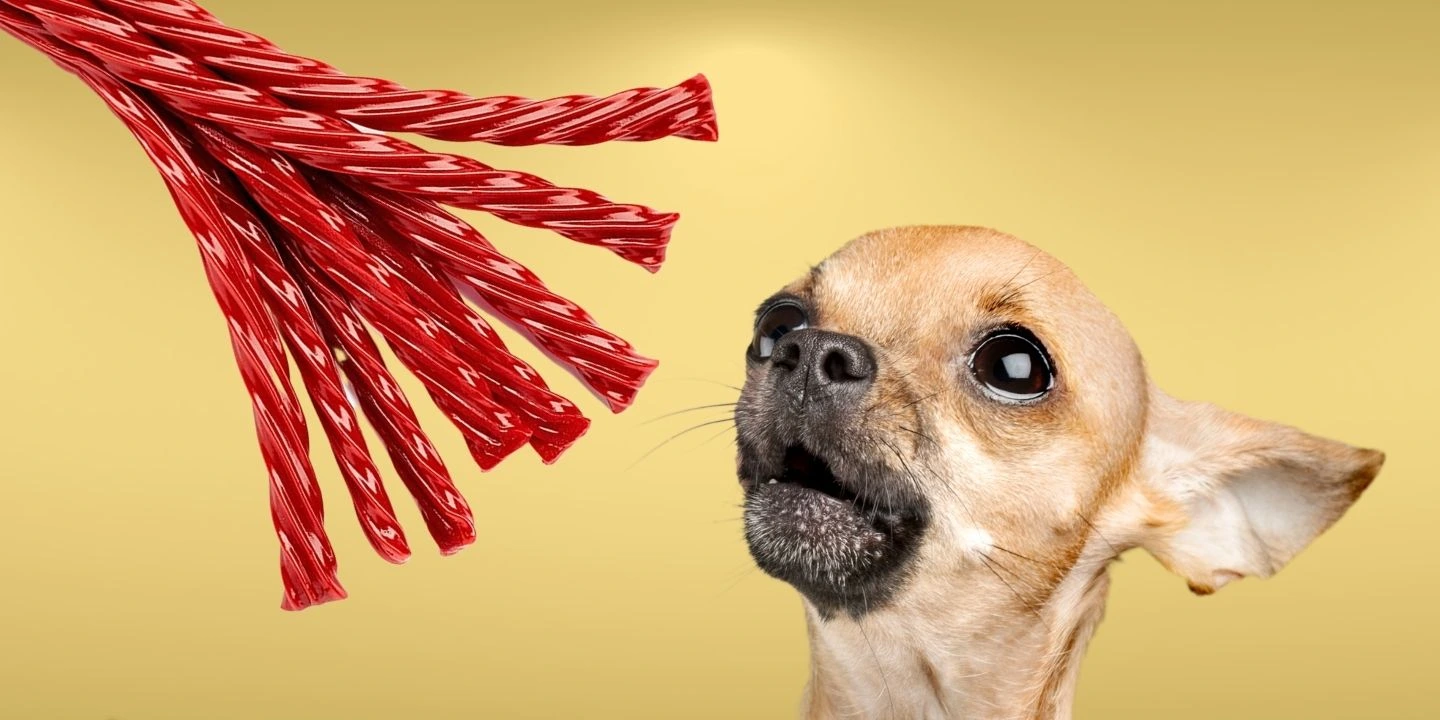As pet owners, it’s natural to want to share our favorite treats with our furry friends. However, when it comes to candy, it’s crucial to be cautious. One popular candy that often piques curiosity is Twizzlers. But can dogs safely indulge in this chewy, fruity treat? Let’s dive into the details.
What Are Twizzlers?
Twizzlers are a popular brand of candy made primarily from sugar, corn syrup, and flour, along with various flavorings and colorings. They are known for their chewy texture and come in a variety of flavors, including strawberry, cherry, and chocolate. While Twizzlers are enjoyed by many humans, they are not designed with dogs’ dietary needs in mind.
Are Twizzlers Safe for Dogs?
While Twizzlers may not be toxic to dogs, they are not recommended for canine consumption for several reasons:
1. High Sugar Content
Twizzlers contain a significant amount of sugar, which is not healthy for dogs. Excessive sugar intake can lead to obesity, dental problems, and even diabetes in pets. Dr. Jennifer Coates, a veterinarian and pet care expert, emphasizes that “sugar can have a very negative impact on a dog’s health, leading to weight gain and other metabolic issues.”
2. Artificial Ingredients
Twizzlers contain artificial flavorings and colorings, which may not be suitable for dogs. Some dogs can have allergic reactions to these additives, leading to gastrointestinal upset or other health issues. According to Dr. Julie Buzby, a veterinarian, “Many artificial ingredients can cause digestive upset in dogs, and it’s best to avoid them altogether.”
3. Potential for Obstruction
Twizzlers have a chewy, gummy texture that can pose a choking hazard, especially for smaller dogs. If a dog swallows a piece without chewing it thoroughly, it could lead to an obstruction in their digestive tract. Veterinary emergency clinics often see cases of gastrointestinal blockage caused by non-food items.
4. Lack of Nutritional Value
Twizzlers offer little to no nutritional benefits for dogs. Unlike treats specifically designed for dogs, which often contain beneficial ingredients, Twizzlers provide empty calories that do not support a dog's health. Dr. Coates advises, “Choosing treats that provide nutritional value is essential for maintaining a healthy diet for your dog.”
What to Do If Your Dog Eats Twizzlers
If your dog accidentally consumes a small amount of Twizzlers, there’s no immediate need to panic. Monitor your dog for any signs of distress, such as vomiting, diarrhea, or lethargy. If your dog exhibits any unusual symptoms or consumes a large quantity, it’s best to consult your veterinarian for advice. Dr. Buzby notes, “If your dog shows any signs of discomfort after eating something they shouldn’t, it’s always best to consult with your veterinarian.”
Alternatives to Twizzlers for Dogs
If you’re looking to treat your dog, there are many healthier alternatives that are safe and delicious:
1. Fruits and Vegetables
Many dogs enjoy fresh fruits and vegetables as treats. Apples (without seeds), carrots, blueberries, and bananas are all safe options. These snacks are low in calories and high in nutrients.
2. Dog-Safe Treats
Consider offering treats specifically designed for dogs, which are formulated with their nutritional needs in mind. Look for treats made from natural ingredients without added sugars or artificial additives.
3. Peanut Butter
Most dogs love peanut butter, which can be a great treat in moderation. Ensure that the peanut butter does not contain xylitol, a sweetener that is toxic to dogs.
4. Homemade Dog Treats
If you enjoy baking, consider making homemade dog treats using dog-friendly ingredients. Simple recipes using oats, pumpkin, and peanut butter can create tasty and healthy snacks for your pet.
Final Thoughts
In conclusion, while dogs can technically eat Twizzlers, they are not a suitable or healthy treat for them. The high sugar content, artificial ingredients, and potential choking hazards make Twizzlers a poor choice for dogs. Instead, opt for healthier, dog-friendly snacks that can be enjoyed without risking your pet's health. Always prioritize your dog’s well-being when considering new treats, and consult your veterinarian if you have any questions about your dog’s diet.


